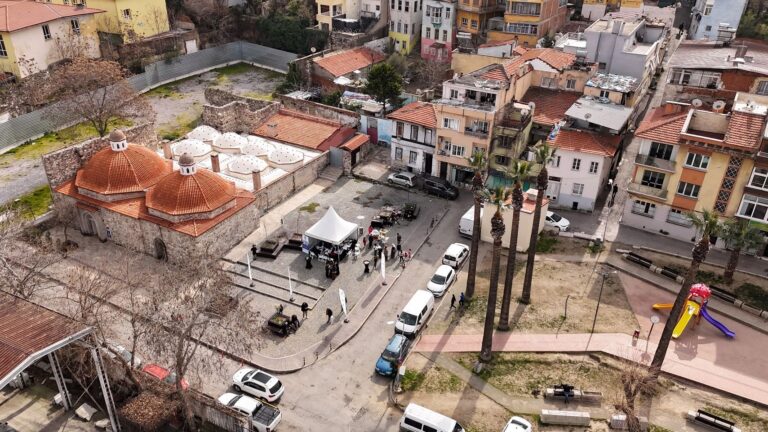Being investment ready for climate resilience
While climate resilience assessment tools help cities understand their risks, adaptation projects often need a final push to become a viable investment opportunity.

While climate resilience assessment tools help cities understand their risks, adaptation projects often need a final push to become a viable investment opportunity.

Food systems, by their very nature, cross boundaries. That’s why FoodCLIC is expanding both the sectors of knowledge involved and the geographies engaged.

International Youth Day – on 12 August – is a chance to reflect on how youth are advancing multilateral cooperation through technology and partnerships. In particular, we will look at the example of the AfriFOODlinks Youth Ambassadors.

As Türkiye braces for another summer of heatwaves and unpredictable storms, spaces like the Kadifekale community garden offer a green space that is not only public, but participatory.

In Izmir’s Pazaryeri and Imariye neighborhoods, women are on the frontlines of climate resilience, navigating floods, heatwaves, and economic challenges while leading solutions that strengthen entire communities.

To ensure climate policies are more socially balanced, particularly in addressing the needs and participation of structurally disadvantaged populations, the INCLU:DE project promotes a shift in focus from incentivizing to enabling. How do cities design local climate actions that speak to all different realities?

At COP29, this session at the Korea Pavilion presented how to build net-zero cities through legal innovation and citizen engagement.

As the world’s attention turned to COP29, leaders from the Local Governments and Municipal Authorities (LGMA) Constituency, gathered on 13 November at a special session to respond to COP29 and the World Leaders Climate Action Summit (WCAS).

Despite cities being home to the majority of G7 citizens, local governments are not yet systematically consulted by national governments on critical decisions affecting their communities. The Urban7 (U7) is seeking to change that within the G7 group of countries.
Local government representation in international fora doesn’t end with the United Nations agendas, such as the Climate COPs. Local and regional governments are advocating for representation – especially with regards to sustainable development objectives – on multiple fronts, including the G7, G20 and other multilateral platforms.

When projects like the Climate Resilience for Communities (CRC) initiative take the time to listen to these stories, they turn local communities’ traditional practices into effective, long-term, resilient and sustainable solutions.

During the ICLEI World Congress 2024 closing plenary on 21 June, Katja Dörner, Mayor of Bonn, Germany, and chair of the Climate Action Governance Portfolio for the ICLEI Global Executive Committee, called on urban leaders to proactively engage with their national governments and local government associations to enhance NDCs by 2025 and support CHAMP. National associations of local governments – under the leadership of ICLEI governance Members – in Germany, Brazil, and the U.S. have pledged to CHAMP, pioneering a global movement to push for stronger local involvement in national climate plans.

This piece was written by Anna Aaen, Deputy Mayor, City of Aalborg, Denmark, following the Copenhagen Climate Ministerial hosted by the city of Elsinore on 21-22 March 2024. It is a wonderful feeling to leave a meeting filled with energy and motivation. And it is even better when the meeting’s agenda is both significant and challenging – namely, global climate action at the local level.